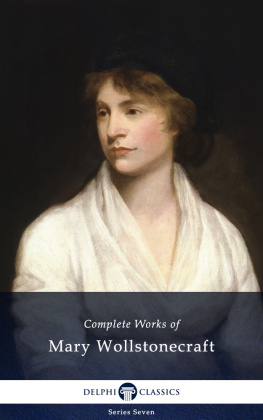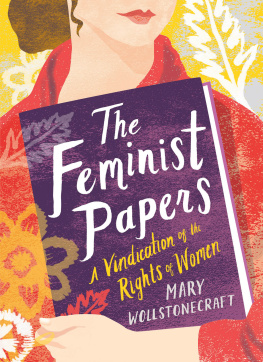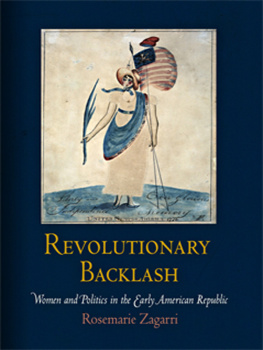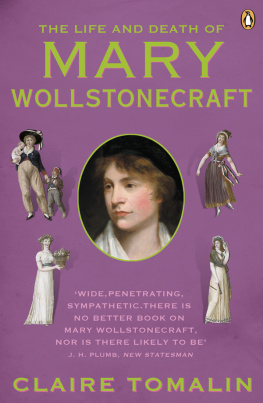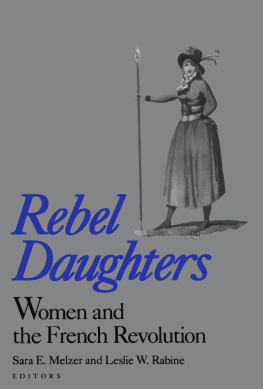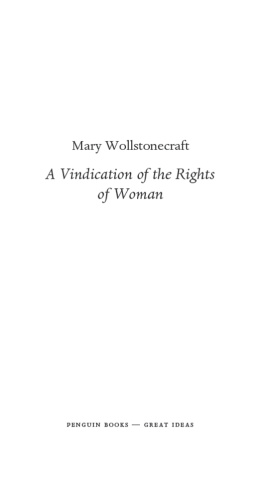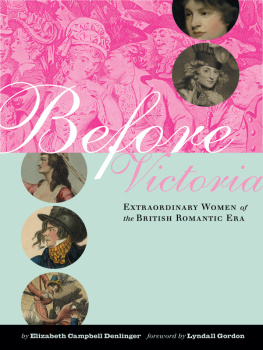OXFORD WORLDS CLASSICS
A VINDICATION OF THE RIGHTS OF MEN
AND
A VINDICATION OF THE RIGHTS OF WOMAN
MARY WOLLSTONECRAFT was born in 1759 and suffered a peripatetic childhood following an increasingly impecunious and drunken father. Fuelled by indignation at the inequality of treatment of herself and the eldest son, she left home to follow the few occupations open to a lady: as companion, schoolteacher, and governess. Her great break came when she was employed as assistant and reviewer for the radical publisher Joseph Johnson in London through whom she met such thinkers as Thomas Paine, Henry Fuseli, William Godwin, and William Blake. Excited by the possibilities of the French Revolution, she entered the propaganda war in England and within a short time wrote both A Vindication of the Rights of Men and A Vindication of the Rights of Woman, arguing the rights of all people to education and consideration. Over the next years she struggled with the problems of trying to be an independent woman despite a conditioning in dependence. In France she entered an ultimately unhappy relationship with Gilbert Imlay and bore a daughter. During this time she wrote her history of the early French Revolution trying to come to terms with the violence and cruelty she had witnessed. In the last year of her life she married Godwin; she died following childbirth a few months later.
Godwins Memoirs of his wife was frank about Wollstonecrafts illegitimate child and suicide attempts and in the public mind welded her emotional romantic life onto the stern nationalist philosophy of the two Vindications.
JANET TODD is a Professor of English at the University of East Anglia. She is the author of several books on eighteenth-century women including Womens Friendship in Literature (1980) and The Sign of Angellica: women, writing, and fiction 16601800 (1989). Her most recent work is Gender, Art and Death (1993) and the first three volumes of the edition of Aphra Behns works.
OXFORD WORLDS CLASSICS
For over 100 years Oxford Worlds Classics have brought readers closer to the worlds great literature. Now with over 700 titlesfrom the 4,000-year-old myths of Mesopotamia to the twentieth centurys greatest novelsthe series makes available lesser-known as well as celebrated writing.
The pocket-sized hardbacks of the early years contained introductions by Virginia Woolf, T. S. Eliot, Graham Greene, and other literary figures which enriched the experience of reading. Today the series is recognized for its fine scholarship and reliability in texts that span world literature, drama and poetry, religion, philosophy and politics. Each edition includes perceptive commentary and essential background information to meet the changing needs of readers.
Refer to the to navigate through the material in this Oxford Worlds Classics ebook. Use the asterisks (*) throughout the text to access the hyperlinked Explanatory Notes.
OXFORD WORLDS CLASSICS

MARY WOLLSTONECRAFT
A Vindication of the Rights of Men
A Vindication of the Rights of Woman
An Historical and Moral View of the French Revolution



Great Clarendon Street, Oxford OX2 6DP
Oxford University Press is a department of the University of Oxford.
It furthers the Universitys objective of excellence in research, scholarship,
and education by publishing worldwide in
Oxford New York
Athens Auckland Bangkok Bogot Buenos Aires Calcutta
Cape Town Chennai Dar es Salaam Delhi Florence Hong Kong Istanbul
Karachi Kuala Lumpur Madrid Melbourne Mexico City Mumbai
Nairobi Paris So Paulo Singapore Taipei Tokyo Toronto Warsaw
with associated companies in Berlin Ibadan
Oxford is a registered trade mark of Oxford University Press
in the UK and in certain other countries
Published in the United States
by Oxford University Press Inc., New York
Editorial material Janet Todd 1993
Hardback published by Pickering and Chatto Ltd. 1993
The moral rights of the author have been asserted
Database right Oxford University Press (maker)
First published as a Worlds Classics paperback 1994
Reissued as an Oxford Worlds Classics paperback 1999
All rights reserved. No part of this publication may be reproduced, stored in a retrieval system, or transmitted, in any form or by any means, without the prior permission in writing of Oxford University Press, or as expressly permitted by law, or under terms agreed with the appropriate reprographics rights organisation. Enquiries concerning reproduction outside the scope of the above should be sent to the Rights Department, Oxford University Press, at the address above
You must not circulate this book in any other binding or cover
and you must impose this same condition on any acquirer
British Library Cataloguing in Publication Data
Data available
Library of Congress Cataloging in Publication Data
Data available
ISBN 0192836528
3 5 7 9 10 8 6 4 2
Printed in Great Britain by
Cox & Wyman Ltd.
Reading, Berkshire
CONTENTS
INTRODUCTION
The works published in this volume are all parts of a controversy concerning the French Revolution. All were written between 1790 and 1794, a peculiar period in English culture which, in its richness of theoretical writing and enthusiasm for political discussion, can be compared only with the turbulent mid-seventeenth century. It was a period in which neighbouring France followed seventeenth-century England in trying to act out political and social theories. For its part, the English government, noting the direction of those theories, tried to limit the spread of activity by controlling the dissemination of ideas. The men and women who wrote on socio-political issues in such a context were not the sages of more peaceful periods but engaged polemicists who believed that their ideas might soon be put into practice; they also knew that their publishing might have political and social consequences for their personal lives.
The two works printed here in full, A Vindication of the Rights of Men and A Vindication of the Rights of Woman, and An Historical and Moral View of the French Revolution printed in part, were all reactive and provocative, elements in a series by people who knew or knew of each other; they make points in a debate about a single phenomenon, the French Revolution. When this event had begun in 1789, most liberal-thinking people in England judged it comparable with the English revolution of 1688. If the works here do not breathe this moderate acceptance, it is mainly because, after the publication in 1790 of Burkes vehement and emotional denunciation, Reflections on the Revolution in France, political alignments became both more problematical and more positive. In certain fundamental respects it is possible to see all Wollstonecrafts political works in dialogue with Burkes ideas and rhetorical stance.
Next page

